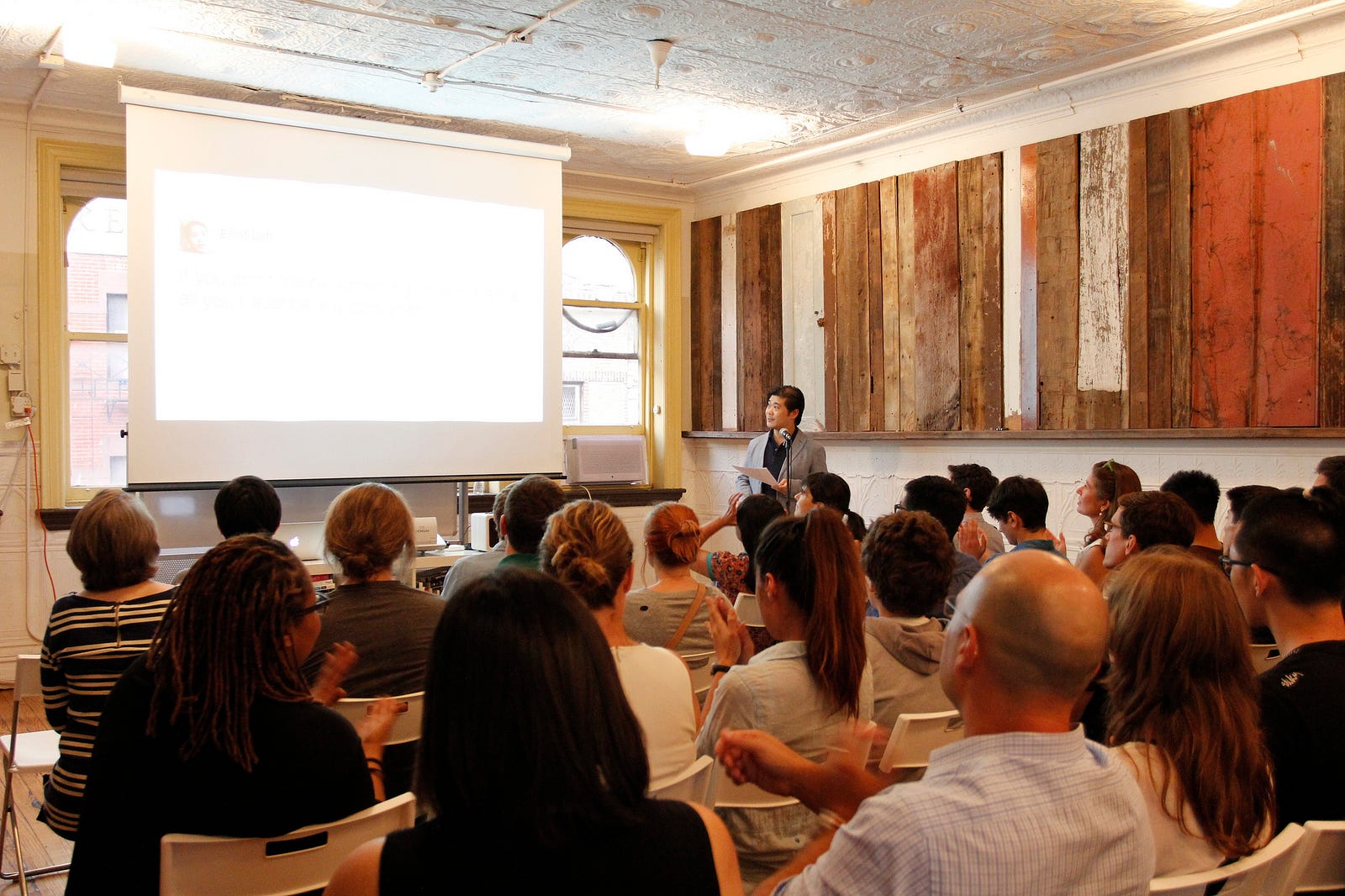On Constraints, Exploration and Chance
When you’re launching an idea, one of the best things you can do for yourself is introduce constraints. Constraints can be anything: a fixed time frame (“launch in a week”), a finite set of tools/resources (“writing code vs. using what already exists”), or limited scope (“for now, we’ll handle this part with a manual process”).
What makes a constraint a good one is whether it provides enough focus for you to move quickly. And so constraints need not be rational — they can be completely arbitrary and still be incredibly effective.
Constraints are a control mechanism buffering against the nature of how ideas work. Ideas like to go on forever, like the party guest who has endless stories to share with you, standing between you and the appetizers.
By definition, if you’re launching a new project you really have no idea how it will be received until you put it out there. In fact, no one does. What you stand to gain by launching is learning. Seeing how people engage with what you made in-real-life is far superior to continued brainstorming or conducting more surveys.
For that reason, making and launching the first iteration as quickly as possible is the best thing you could do. Constraints enable that by limiting the work you need to do in order to launch. They’re a preventative measure against building your whole vision all at once. They are not forcing you to compromise your vision, rather they are asking you to be deliberate about choosing a place to start.
This is a mindset that can be tough to teach, because it may require a shift in how we look at ourselves. If your goal in launching a project is to attain a level of recognition for your work or to prove that you are right, this can be a tough philosophy to swallow. The nature of the metric often informs how we behave.
Instead, think of yourself more as an explorer — one who doesn’t claim to know where they should be going. Freed from the responsibility of having to know the answer, you will be able to explore a problem or to pursue what you find to be curious or interesting to you.
The side effect of all of this — leveraging constraints in your process, embracing the idea of being an explorer, and thus launching more quickly — is that it puts you in a position to be a beneficiary of chance, which makes it possible for opportunities to find you that you wouldn’t otherwise know about. In that sense, constraints provide us greater optionality.
At a small level, this is what happens with Kickstarter projects, many of which effectively serve as a mandate for the creator’s idea to exist. The existence of the project enables a supportive community of backers to coalesce. It’s not uncommon for many of these backers to be outside of the creator’s personal network.
At a much larger scale, we’ve seen this with Twitter, whose business model was made possible by emergent user behavior on the network — the @-reply, retweet and hashtag were invented by its users. Only after it took hold was it productized by the company. That the company had the patience to allow the behavior to unfold and the awareness to embrace the outcome is one of the best examples of taking an explorer’s mindset with your work.
Great things often start small and evolve over time in unexpected ways. While we cannot control outcomes, we can be receptive to them, looking objectively for what works and what does not.
Beyond that, we can be intentional about our choices: the constraints we adopt, how we frame our relationship to our work, the willingness to accept where it takes us, and creating a time and place to get started.
Looking to launch a project? Join the Orbital 1K and launch a $1,000 Project in four weeks.

